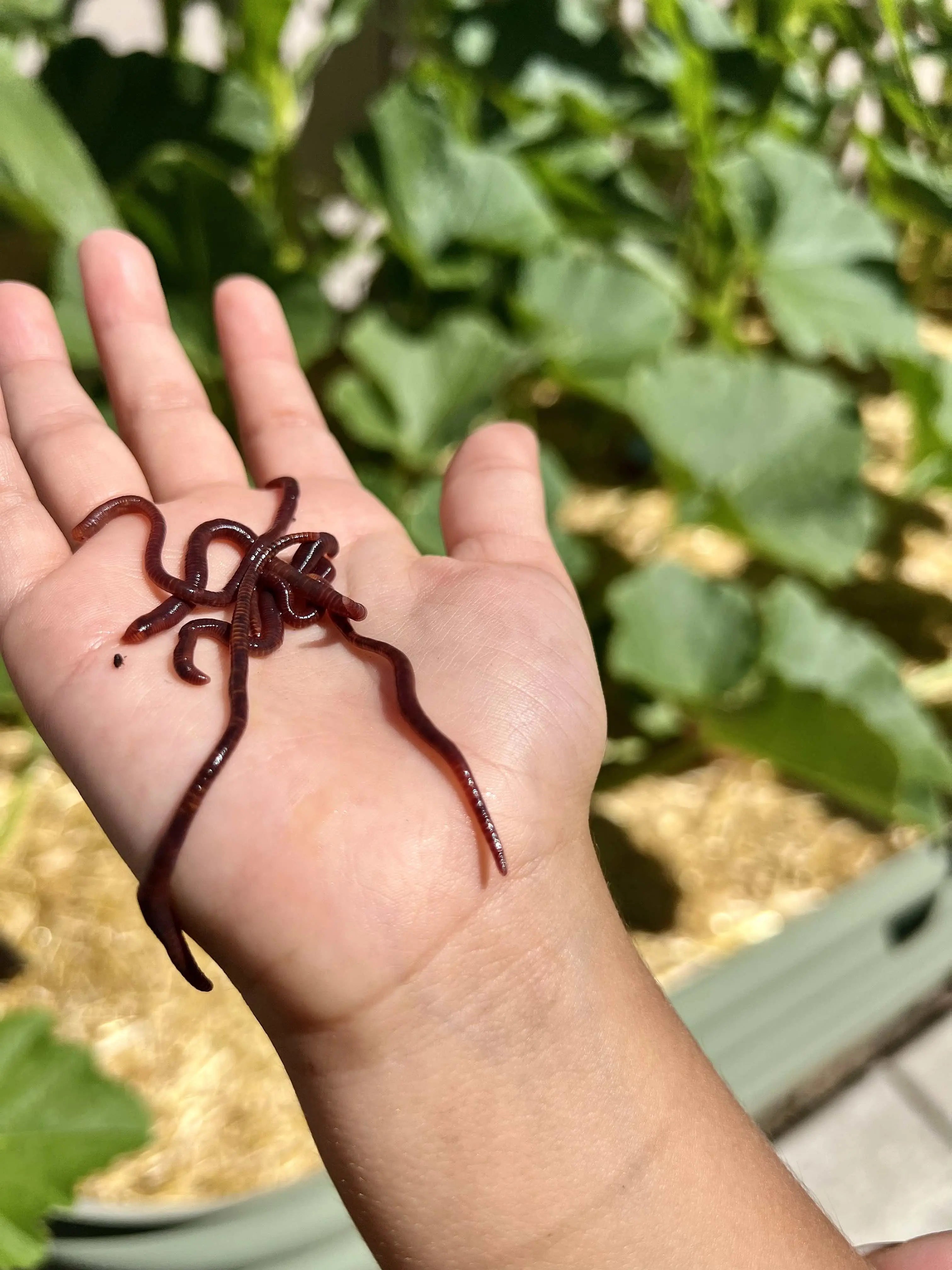Buy Red Wiggler Worms - Ideal for Composting and Gardening
Buy Red Wiggler Worms - Ideal for Composting and Gardening
Blog Article
Red Wiggler Worms Demystified: Unlocking the Keys of Vermiculture for Greener Living and Nutrient-Rich Soil
In the world of lasting techniques for enhancing dirt high quality and advertising eco-conscious living, red wiggler worms play a pivotal yet frequently ignored role. Red Wiggler Worms. Recognizing the ins and outs of caring for these worms, maximizing their environment, and using their castings can lead to a greener lifestyle and healthier dirt for plants to prosper.
The Function of Red Wiggler Worms
Red Wiggler worms play a crucial function in composting systems by successfully breaking down natural matter right into nutrient-rich spreadings. These ravenous eaters take in a variety of organic products, such as cooking area scraps, yard waste, and paper items. As they feed, the worms' digestion processes break down the raw material into a fine, dark, and nutrient-dense product called worm spreadings or vermicompost.
The castings created by Red Wiggler worms are very helpful for dirt health and wellness and plant growth. They are abundant in essential nutrients like phosphorus, potassium, and nitrogen, which are crucial for sustaining healthy plant growth. In addition, worm castings contain valuable microbes and enzymes that help enhance dirt framework, boost water retention, and enhance nutrient uptake by plants.
Advantages of Vermicomposting

Moreover, vermicompost, the nutrient-rich final product of vermicomposting, acts as an excellent organic plant food and dirt conditioner. It enhances soil structure, boosts soil oygenation, and enhances soil moisture retention. These residential or commercial properties contribute to healthier plants with stronger origin systems and far better resistance to parasites and conditions. Vermicompost additionally improves the soil with important nutrients like phosphorus, potassium, and nitrogen, advertising plant growth and overall dirt fertility.
In addition, vermicomposting supports lasting horticulture methods by providing a chemical-free and all-natural choice to synthetic plant foods. Red Wiggler Worms. This eco-friendly method not just improves the dirt yet likewise helps in reducing dependence on dangerous chemicals, promoting a greener and much more sustainable means of horticulture
Establishing a Worm Container
When developing a worm bin for vermicomposting, proper arrangement is crucial to ensure the success of the composting procedure. The very first action in setting up a worm bin is picking an appropriate container.
After including the bed linen, present the red wiggler worms to the bin. It is suggested to begin with a tiny more information number of worms and gradually boost as they increase. The worms must then be provided with food scraps such as fruit and veggie peels, coffee premises, and eggshells. It is vital to stay clear of adding meat, dairy products, oily, or salty foods to avoid attracting pests and developing undesirable odors.
Consistently monitor the wetness levels and temperature level in the worm bin to ensure optimal problems for the worms. With correct configuration and upkeep, the worm container will effectively transform organic waste right into nutrient-rich compost for your plants and yard.
Gathering Worm Spreadings
To efficiently collect nutrient-rich worm castings from your vermicomposting system, a methodical harvesting approach is crucial. There are a few crucial steps to comply with to make certain an effective procedure when it comes time to gather the worm spreadings. Quit including fresh food scraps to one side of the worm bin for a couple of weeks before harvesting. This encourages the worms to migrate sideways with fresh bed linen and food, making it simpler to scoop out the castings from the other side.

Troubleshooting Common Issues
Identifying and attending to usual difficulties that may develop during the vermicomposting procedure is critical for keeping a healthy and balanced and productive worm bin. Including excess food scraps can lead to a build-up of wetness and level of acidity in the worm bin, potentially harming the worms. Another issue is unpleasant odors originating from the worm bin.
Furthermore, if the worm populace is declining or the worms appear unhealthy, it might be because of environmental stress factors such as severe temperatures or pH levels. Checking these elements and making necessary modifications is important for the health of the worms. By troubleshooting these usual issues immediately, vermicomposters can guarantee a effective and smooth vermicomposting process while maintaining a growing worm populace.

Conclusion
Finally, red wiggler worms play a critical duty in vermiculture by damaging down natural matter right into nutrient-rich dirt. The benefits of vermiculture consist of greener living and improved dirt top quality. Setting up a worm bin is essential for effective vermiculture, and collecting worm castings gives important compost for horticulture. By recognizing and fixing common concerns, people can unlock the keys of vermiculture for lasting living and healthier soil.
As they feed, the worms' digestion procedures damage down the organic issue right into a penalty, dark, and more info here nutrient-dense product understood as worm spreadings or vermicompost.
The spreadings created by Red Wiggler worms are very advantageous for soil wellness and plant growth. Adding excess food scraps can lead to a buildup of wetness and acidity in the worm container, potentially harming the worms.Furthermore, if the worm population is declining or the worms show up harmful, it can be due to environmental stress factors such as severe temperature levels or pH degrees. Setting up a worm bin is crucial for effective vermiculture, and gathering worm castings provides beneficial compost for gardening.
Report this page